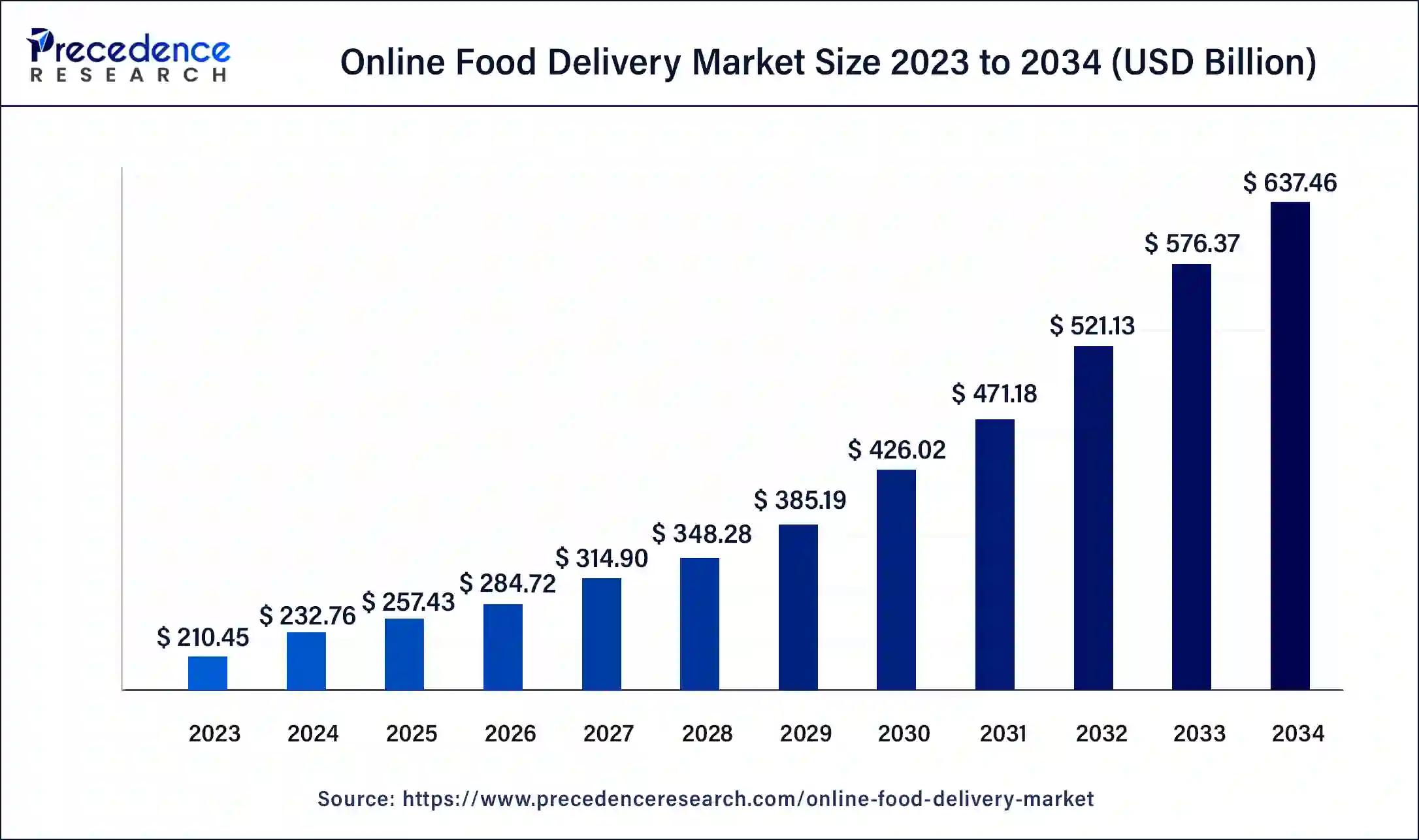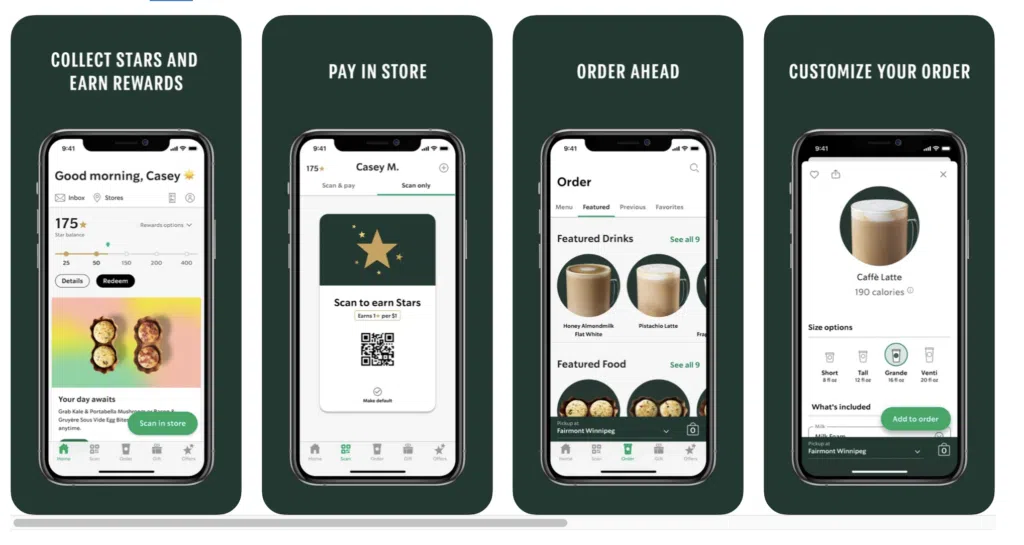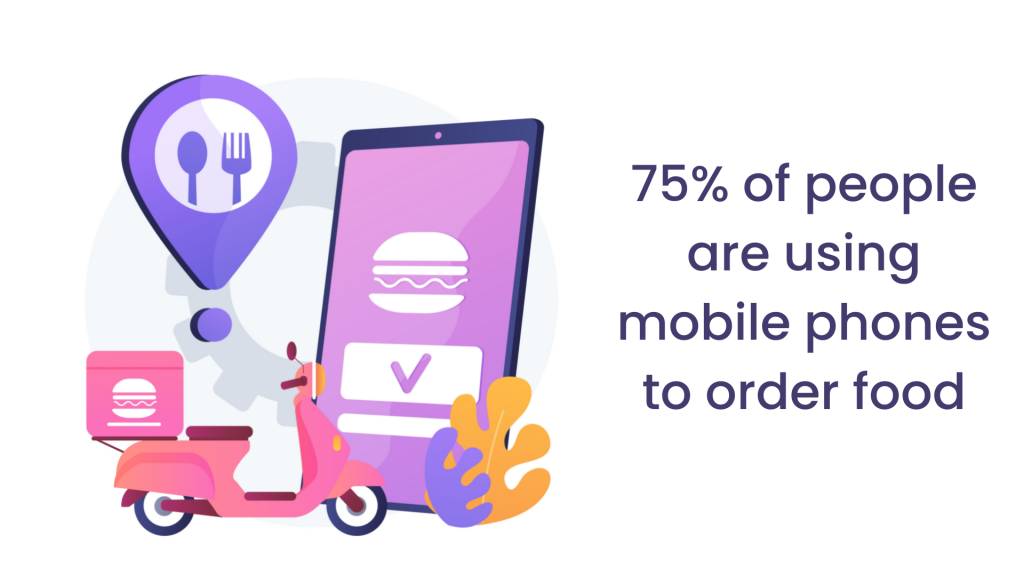Step-by-Step Guide to Restaurant App Development in 2025
The restaurant industry has been reshaped by technology, with mobile apps emerging as indispensable tools for both businesses and customers. In 2025, restaurant app development isn’t just about adapting to trends; it’s about transforming how restaurants operate, interact with customers, and stay competitive. This comprehensive guide will explore the impact of mobile apps, the features to prioritize, development costs, and the steps to build an app that stands out in the crowded marketplace.
How Mobile Apps Have Changed the Restaurant Industry
The rise of mobile technology has revolutionized the restaurant industry, fundamentally altering how businesses operate and interact with customers. Restaurant app development has transformed customer experiences, streamlined operations, and driven significant growth for establishments worldwide. Let’s explore the ways in which these changes have reshaped the industry:
Revolutionizing Customer Experience
Mobile apps offer unparalleled convenience, redefining how customers interact with restaurants. Features such as digital menus, one-click ordering, and personalized loyalty programs create seamless experiences that meet modern consumer demands.
According to Precedence Research, the global online food delivery market size accounted for USD 232.76 billion in 2024 and is expected to be worth around USD 637.46 billion by 2034, at a CAGR of 10.6% from 2024 to 2034. This shift highlights the growing dependence on restaurant apps for everyday dining and takeaway needs. Through restaurant app development, businesses can ensure customers enjoy intuitive, fast, and satisfying interactions, leading to higher satisfaction and retention rates.

Image source: Precedence Research
Driving Sales Growth
The ability of mobile apps to boost sales is well-documented. By integrating targeted promotions, upselling options, and real-time order tracking, restaurants can enhance revenue streams. Domino’s Pizza serves as a leading example, attributing over 70% of their global sales in 2024 to digital platforms, primarily their mobile app.
Restaurants can further capitalize on the power of restaurant app development by implementing AI-driven recommendations. These features analyze user preferences to suggest additional items or bundle deals, encouraging customers to spend more per order. As customer engagement deepens, revenue growth follows.
Streamlining Operations
One of the most significant impacts of mobile apps is their ability to streamline restaurant operations. Apps handle complex, labor-intensive tasks such as inventory management, table reservations, and order processing with minimal human intervention. This automation not only reduces operational costs but also minimizes errors that could affect customer satisfaction.
By investing in restaurant app development, businesses can centralize their processes, allowing staff to focus on providing excellent service. For instance, apps with integrated inventory systems can notify managers when stock levels are low, ensuring smooth kitchen operations.
Harnessing Data Insights
Mobile apps are treasure troves of valuable customer data. Through analytics tools integrated during restaurant app development, businesses can track purchasing behavior, peak dining times, and menu preferences. This data is critical for personalizing services and improving marketing strategies.
For example, McDonald’s leverages its app to analyze user trends, enabling the company to send tailored promotions that resonate with specific customer segments. This approach has not only boosted sales but also enhanced the overall customer experience.
Strengthening Brand Loyalty
An often-overlooked impact of mobile apps is their role in fostering brand loyalty. Features like push notifications, loyalty rewards, and personalized offers keep customers engaged and returning. Restaurant app development that focuses on user-friendly interfaces and engaging rewards programs can create lasting bonds between the brand and its customers.
The success of Starbucks’ loyalty program is a testament to this. By integrating their app with rewards and payment options, the company has maintained 30% of all transactions globally through their app, proving that a well-developed app can significantly enhance customer retention.
Have a Project Idea in Mind?
Get in touch with Savvycom’s experts for a free consultation. We’ll help you decide on next steps, explain how the development process is organized, and provide you with a free project estimate.
Why Does Your Restaurant Need a Mobile Application?
In the digital age, a mobile application is more than a luxury for restaurants—it’s a vital tool for staying competitive and achieving sustainable growth. By embracing restaurant app development, businesses can tap into a range of benefits that enhance customer satisfaction, improve operational efficiency, and boost revenues.
Enhanced Customer Convenience
Mobile apps offer unparalleled ease for customers to interact with restaurants. Whether browsing menus, placing orders, or reserving tables, diners can handle everything with just a few taps.
A research revealed that 71% of consumers prefer restaurant-specific websites or mobile apps over third-party solutions, citing speed and convenience as key factors. Features like secure payment gateways and real-time order tracking add to the appeal, creating a seamless dining experience. With restaurant app development, businesses can ensure they meet these growing expectations and attract tech-savvy customers.
Strengthening Customer Loyalty
Loyalty programs are a cornerstone of customer retention, and integrating them into mobile apps takes their effectiveness to the next level. Personalized rewards, points systems, and exclusive offers keep users engaged and motivated to return.
Starbucks’ loyalty program serves as a benchmark in this regard, generating 30% of its global transactions through its mobile app. By investing in restaurant app development, businesses can replicate this success, building stronger connections with their customer base while boosting sales.

Image source: Indigo 9 Digital
Expanding Revenue Streams
Mobile apps open new avenues for increasing restaurant revenue. Through features like upselling, cross-selling, and delivery integrations, businesses can maximize each customer interaction.
Studies indicate that customers who order via apps spend 15-20% more than walk-in customers, driven by personalized promotions and the convenience of app-based transactions. Additionally, advanced restaurant app development can integrate subscription-based meal plans or partnerships with delivery platforms, further diversifying revenue streams.
Gaining Competitive Advantage
The restaurant industry is rapidly digitizing, with over 60% of establishments in urban areas already offering mobile apps. Without an app, a business risks being perceived as outdated and losing customers to more tech-savvy competitors.
A well-designed mobile application positions a restaurant as innovative, customer-focused, and forward-thinking. By leveraging restaurant app development, businesses can differentiate themselves, attract a broader audience, and ensure they remain at the forefront of industry trends.
Leveraging Real-Time Feedback
Customer feedback is crucial for improving service quality, and mobile apps make gathering this input easier than ever. In-app surveys, star ratings, and comment sections provide valuable insights into what customers value and where improvements are needed.
For example, apps with integrated feedback systems allow restaurants to address issues immediately, improving overall satisfaction and retention rates. With thoughtful restaurant app development, businesses can create feedback loops that drive continuous improvement and demonstrate their commitment to customer satisfaction.
Through enhanced convenience, loyalty-building features, and innovative revenue strategies, mobile apps have become indispensable for modern restaurants. As the industry continues to evolve, investing in restaurant app development is a key step toward securing success in a competitive marketplace.
Must-Have Restaurant Mobile App Features
To succeed in the competitive restaurant market of 2025, developing a feature-rich, intuitive app is essential. Thoughtful restaurant app development focuses on combining essential functionalities with innovative tools that enhance user experience and operational efficiency.

Image source: Open Geeks Lab
Here are the must-have features for your app:
Intuitive User Interface (UI)
A user-friendly interface is the foundation of any successful restaurant app. The design should be clean, responsive, and easy to navigate, allowing users to browse menus, place orders, or make reservations without confusion.
Apps with a well-crafted UI often see restaurant app development, as customers are more likely to return to an app that feels seamless and intuitive. Restaurant app development should prioritize functionality while ensuring the design reflects your restaurant’s branding and aesthetics.
Online Ordering and Delivery
Online ordering has become a cornerstone of restaurant operations, with customers expecting fast, reliable service. Essential features include real-time order tracking, estimated delivery times, and push notifications to keep users updated.
According to a 2024 report, over 70% of consumers regularly use mobile apps for ordering food, making this feature indispensable. Advanced restaurant app development can also integrate third-party delivery services, expanding your reach without additional infrastructure.

Image source: Appmysite
Table Reservations
For dine-in restaurants, a robust reservation system is crucial. Customers should be able to view live table availability, book seats, and even join a virtual waitlist directly through the app.
This feature reduces the hassle of manual reservations while ensuring an enhanced dining experience for users. It’s particularly valuable for high-demand restaurants where securing a table can be challenging.
Loyalty and Rewards Programs
Loyalty programs are a proven method for increasing customer retention and engagement. Incorporate a points-based system where users earn rewards for repeat purchases, referrals, or app activity.
A 2024 Deloitte study showed that loyalty programs can increase customer lifetime value by 40%, making them a critical component of restaurant app development. Starbucks’ app is a prime example of how well-implemented rewards systems drive repeat business.
Multiple Payment Options
A secure, versatile payment system is non-negotiable. Ensure your app supports credit cards, digital wallets like Apple Pay and Google Pay, and even cryptocurrencies to cater to diverse customer preferences.
By integrating multiple payment options, you reduce friction during checkout, improving customer satisfaction. Security features like encryption and tokenization should be prioritized during restaurant app development to protect user data.
Looking For a Trusted Tech Partner?
We’ll help you decide on next steps, explain how the development process is organized, and provide you with a free project estimate.
Push Notifications
Push notifications are an effective way to engage users and drive sales. Use them to inform customers about new menu items, exclusive discounts, or special events.
Studies indicate that timely push notifications can boost sales by up to 20%, making them a valuable tool for marketing and engagement. Personalization, such as recommending dishes based on order history, can further enhance their impact.
Multi-Language Support
For restaurants serving diverse communities or catering to international tourists, multi-language support is essential. Providing menus, instructions, and interfaces in multiple languages ensures accessibility and broadens your customer base.
Well-planned restaurant app development can incorporate AI-driven language translation tools, ensuring accurate and context-aware communication across languages.
Feedback and Reviews
In-app feedback mechanisms allow customers to share their experiences directly. Positive reviews can be displayed prominently to attract new users, while constructive feedback provides actionable insights for improvement.
Integrating a rating and review system during restaurant app development can help build trust and credibility while keeping customers engaged. Automated responses or follow-ups to reviews can further enhance the customer experience.

How Much Does It Cost to Build a Restaurant Mobile Application?
The cost of restaurant app development depends on the app’s complexity, features, and the development team’s expertise. Below is a detailed breakdown:
|
Initial Development Costs |
Basic App: $15,000–$25,000 |
|
Mid-Range App: $30,000–$50,000 |
|
|
High-End App: $60,000+ |
|
|
Additional Costs |
Maintenance and Updates: Ongoing costs are approximately 15–20% of the initial development cost annually. |
|
Marketing and User Acquisition: Expect to spend between $5,000 and $20,000 annually to promote the app. |
|
|
Factors Influencing Costs |
Platform Choice: Developing for iOS, Android, or both. |
|
Customization Needs: Custom designs or unique features add to the cost. |
|
|
Team Expertise: Partnering with an experienced software development company ensures high-quality results. Reputable firms like Savvycom specialize in tailored solutions to meet specific business needs. |
Conclusion
The restaurant industry is undergoing rapid digitization, and mobile apps have become a crucial tool for staying competitive. Whether you aim to streamline operations, enhance customer experiences, or drive revenue growth, investing in restaurant app development is a strategic move that pays off.
Start building your restaurant’s future today with a mobile app tailored for 2025 and beyond! Let Savvycom be your trusted partner in crafting an app that drives growth and customer satisfaction.
Tech Consulting, End-to-End Product Development, Cloud & DevOps Service! Since 2009, Savvycom has been harnessing digital technologies for the benefit of businesses, mid and large enterprises, and startups across the variety of industries. We can help you to build high-quality software solutions and products as well as deliver a wide range of related professional services.
Savvycom is right where you need. Contact us now for further consultation:
- Phone: +84 24 3202 9222
- Hotline: +1 408 663 8600 (US); +612 8006 1349 (AUS); +84 32 675 2886 (VN)
- Email: [email protected]


